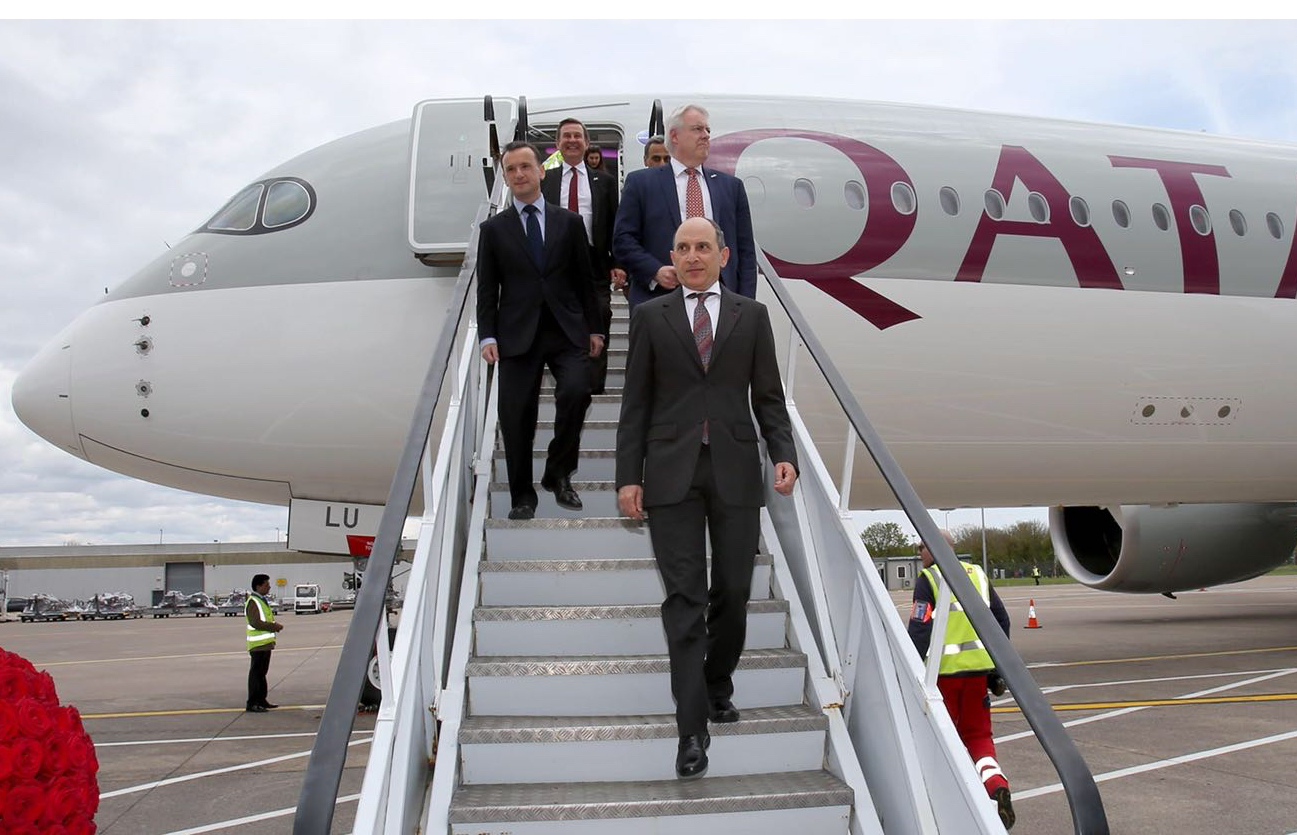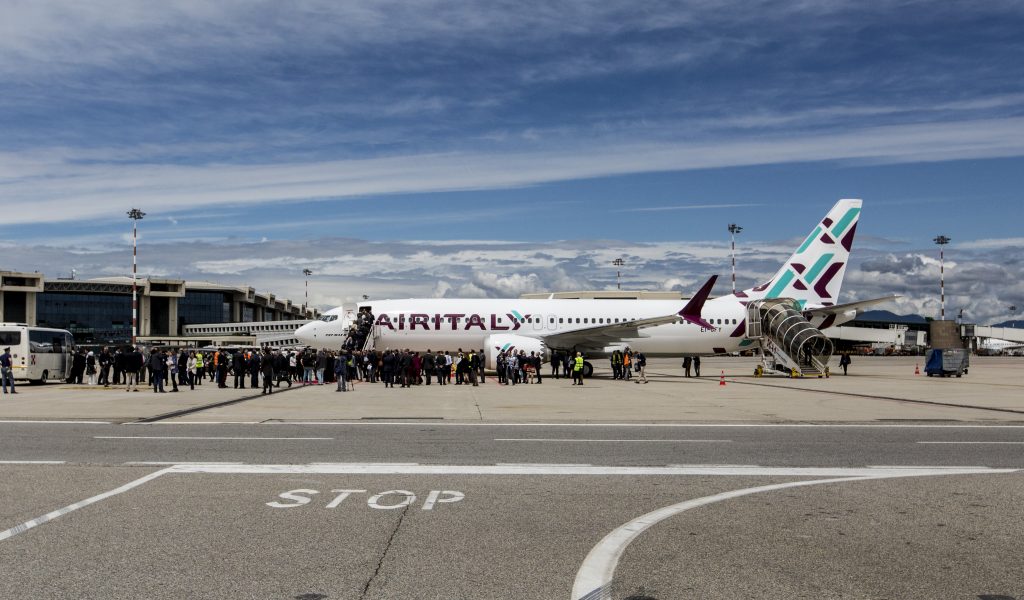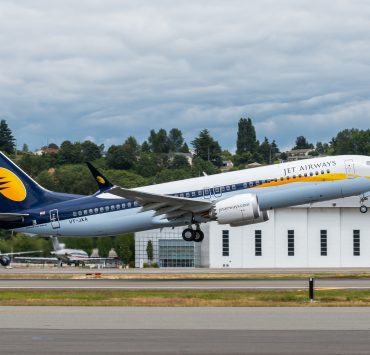
Two airline chief executives and the boss of global shipping company FedEx have sent an open letter to U.S. Secretary of State Mike Pompeo to “set the record straight” over what they refer to as “wholly-unsubstantiated claims” about Qatar Airways and its minority investment in Air Italy.
Last week, Secretary Pompeo faced questions at a Senate Foreign Relations Committee in which lawmakers repeatedly asked about the expansion of Qatar Airways into the United States and whether its business ties with Air Italy “run directly counter” to a one-year agreement that the Trump Administration reached with the State of Qatar over the government-owned airline and its use of Open Skies regulations.
At the time, Secretary Pompeo said he was “personally engaged” in the issue and was looking into whether Qatar Airways had breached the agreement by taking a 49% stake in Italian airline Meridiana which has since been rebranded as Air Italy. Since becoming Air Italy, the Sardinian carrier has opened a slew of new routes to North America including daily flights to New York JFK and Miami, as well as direct flights to Los Angeles, San Francisco and Toronto.
Critics claim Air Italy is being used by Qatar Airways to get around the commitments it made to the Trump Administration, such as the promise that it didn’t intend to open up any Fifth Freedom routes to the United States.

For its part, Qatar Airways says its 49% minority stake in Air Italy is “fully compliant” with last year’s agreement and that it doesn’t codeshare on any of Air Italy’s routes.
Now, Fred Smith Chairman and CEO of FedEx, Robin Hayes, CEO of JetBlue, and Bill Flynn, President and CEO of Atlas Air Worldwide have written an open letter to Secretary Pompeo to address “inaccurate statements made by opponents of Open Skies agreements.”
The three companies are members of a lobby group called the U.S. Airlines for Open Skies Coalition that was set up to counter claims from the Big Three U.S. airlines that carriers from the Middle East were putting thousands of American jobs at risk by entering the North American market with the help of huge government subsidies.
The letter says the current Open Skies policy that allows airlines like Emirates, Etihad and Qatar Airways unfettered access to operate flights to the United States is “unquestionably one of the most successful economic and diplomatic initiatives in American history.”
“It has produced record profits for our airlines, both passenger and cargo; and it has created jobs for American workers at home and abroad,” the letter continues.
The letter describes allegations that Air Italy’s flights to the United States are “defacto” Fifth Freedom flights as “illogical” and if accepted as turning “aviation law on its head.”
“It is clear that Qatar’s investment in Air Italy does not breach the Understandings, nor in any way violate Open Skies agreements between the U.S. and EU, or the U.S. and Qatar,” the letter reads.
Warning Secretary Pompeo of the consequences of acting on concerns raised by Air Italy’s critics, the three chief executives say there would be a “rapid unravelling of hard-fought aviation rights around the world.”
jetBlue has previously come in for criticism for its codesharing agreements with Emirates because U.S. government agencies were buying jetBlue tickets for employees who actually ended up flying with Emirates to international destinations. FedEx and Atlas Air have both benefited from the Open Skies regulations that have allowed them to expand operations into the Middle East through Dubai and Doha.
It just goes to show that there are two sides to every story. Critics of Qatar Airways – like Delta and American Airlines – will have to prove they’ve actually been harmed by Qatar Airways receiving government subsidies. That’s something they’ve so far failed to do.
The full letter can be read below:
Dear Secretary Pompeo and Secretary Chao:
The U.S. Open Skies policy is unquestionably one of the most successful economic and diplomatic initiatives in American history. Coupled with domestic airline deregulation, it has greatly expanded air service access at U.S. communities, stimulating extraordinary economic growth in the process; it has produced record profits for our airlines, both passenger and cargo; and it has created jobs for American workers at home and abroad. We thank you for your staunch support for Open Skies and for ensuring that the U.S. remains steadfast in its commitment to open international aviation markets.
We write to you today, against renewed and thinly veiled attacks, to reiterate our support for Open Skies and for the January 30, 2018 Record of Discussion between the U.S. and the State of Qatar, and the May 11, 2018 Record of Discussion between the U.S. and the United Arab Emirates (UAE). The “Understandings,” and the years of careful, diplomatic efforts that preceded them, struck an appropriate balance between two important interests: increasing transparency about government financial support of foreign airlines, leading potentially to market distortions not yet addressed in any aviation model, and the continuing U.S. support for Open Skies.
The 2018 Understandings established certain expectations with respect to financial transparency and state support, while noting that such support is not uncommon in the global aviation sector. We fully support the Understandings and their careful balance of interests.
Respectfully, as both the U.S. Departments of State and Transportation have reiterated numerous times, the Records of Discussion were carefully drafted to avoid addressing the aviation rights and obligations of the parties to the underlying Open Skies agreements. In addition, the side letters from the governments of Qatar and the UAE do not contain any commitments to restrict 5th freedom service expansion by their airlines, just as the U.S. carriers exercise globally. Ongoing contrary statements about the Understandings are plain misrepresentations, which do a disservice to the outstanding work of the U.S. officials who tirelessly sought to craft this carefully balanced outcome on behalf of our nation.
We are especially concerned by the latest efforts to distort the Understandings even further with a wholly unsubstantiated claim that the Understandings control Qatar Airways’ minority investment in Air Italy, a legally certified European carrier. This false characterization of Air Italy’s flights as “de facto” 7th freedom flights is contrary to established international aviation law. The Air Italy flights in question would be legally permitted 3rd and 4th freedom flights operated by an EU carrier under the U.S.-EU Open Skies agreement. If one were to accept this logic, Delta’s 49% investment in Virgin Atlantic would mean that Virgin’s flight from London to Dubai is a Delta 7th Freedom flight. Further, American Airlines’ investment in state-owned and state-supported China Southern would turn China Southern’s flights from Beijing to Guangzhou into cabotage by American. As we have explained, the claims are illogical and would turn aviation law on its head.
With all of these false claims being pushed, we believe the time has come to set the record straight. First, the Italian Civil Aviation Authority reviewed Air Italy’s ownership structure and concluded it complies with European aviation law. Subsequently, the European Commission confirmed that decision. If a party has facts supporting a contrary determination, they should request that the European Commission reevaluate its prior decision. Additionally, it is clear that Qatar’s investment in Air Italy does not breach the Understandings, nor in any way violate Open Skies agreements between the U.S. and EU, or the U.S. and Qatar.
The all-cargo industry has spent decades working to develop global trade rules that address state-owned enterprises in the delivery sector. During the same time, the U.S. passenger aviation industry could have developed similar policies and rules that would apply to all passenger carriers. The fact is, however, that certain U.S. passenger carriers do not want these rules. By accepting the role of state support in aviation, they have profited generously through their anti-competitive commercial alliances with other state-supported carriers worldwide.
Our interest has always been in maintaining our nation’s commitment to the Open Skies model because it is central to ensuring a thriving American aviation sector, including the hundreds of thousands of jobs we support, the benefits we bring to consumers, the incredible innovation it has spurred particularly through global cargo networks, and the freedom to compete that has allowed our cargo and passenger carriers to become the global leaders in commercial aviation. We have consistently maintained that if any U.S. airlines have concerns with unfair competition they should attempt to negotiate rules that would apply to all airlines or pursue those claims through existing laws, such as the International Air Transportation Fair Competitive Practices Act (IATFCPA).
Should the U.S. breach the U.S.-Qatar agreement by restricting Qatar Airways’ rights into the U.S., or the U.S.-EU agreement by restricting Air Italy flights, we can expect to see a rapid unraveling of hard-fought aviation rights around the world when other governments take similar action to shield their state-owned airlines from competition. Undoubtedly, closing access to global markets will be a punishment that brings higher prices and fewer choices for American travelers, consumers, and shippers. It would also invite retaliation against U.S. airlines that have used Open Skies and 5th freedom rights to build their thriving global networks – and upon which hundreds of thousands of American jobs depend. Retaliation would also have a crippling impact on U.S. passenger carriers seeking new service to the EU and halt any ability to bring down ticket prices in the outrageously expensive transatlantic market. For JetBlue, who just announced its intention to begin service to London from New York City and Boston starting in 2021, the possibility of retaliation could have a devastating impact on the ability to obtain authority to operate in the EU under the U.S.-EU Open Skies agreement.
We thank you for your unwavering support for Open Skies policy and all Open Skies rights, including 5th freedom rights, which are of particular importance to U.S. all-cargo carriers. We urge you to stand firmly behind those vital commitments.
Mateusz Maszczynski honed his skills as an international flight attendant at the most prominent airline in the Middle East and has been flying throughout the COVID-19 pandemic for a well-known European airline. Matt is passionate about the aviation industry and has become an expert in passenger experience and human-centric stories. Always keeping an ear close to the ground, Matt's industry insights, analysis and news coverage is frequently relied upon by some of the biggest names in journalism.









